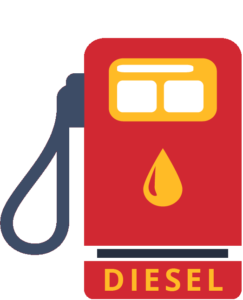Trimble is skating to where the proverbial puck is going to be by driving connection. “Connecting users to stakeholders of data is imperative to see where that puck is going,” said CEO Rob Painter during the technology company’s Insight 2023 Tech Conference and Expo in Las Vegas, Nev. on Sept. 25.
Painter said the market has changed dramatically in the last few quarters. “We are arguably in a freight recession,” he said, referring to where the puck is right now. Data is crucial and convergence of technology is enabling data to be leveraged to create optimization, he added.

Sometimes carriers are overwhelmed by data and the best place to start is by asking what problem is being targeted. “In absence of that you can be without a rudder while sailing. You must work backward to the endgame,” Painter said.
The world produces 2.5 quintillion bytes of data per day. Putting that into perspective, it is more than 250 million times the number of observable stars or the equivalent of taking 27 billion trips around the Sun. The pace of change is such that the computing power it took to put men on the Moon in the Sixties now lies within a smartphone.
The VUCA factor
Painter warned that VUCA (volatility, uncertainty, complexity and ambiguity) has become the norm. Volatility of freight rates, uncertainty of managing capacity, complexity of operations, and ambiguity as to where the market is going are weighing on the industry.
“We have to avoid traditional and outdated approaches as conventional methods are reaching their limits. We want to improve network efficiencies, reduce empty miles, recruit and retain drivers, and manage market risks,” he said.
This can be achieved by developing technology that connects the digital and physical world.

The key is saving half a cent or a cent per mile for a fleet. Ron Bisio, Trimble’s senior vice-president said this can be found in predictive maintenance, hiring experienced drivers so they don’t have to be retrained or with the better use of fuel solutions.
Another way to squeeze out savings is by reducing empty miles. Connectivity from the cab and transportation management system can be used for this, said Michael Kornhauser, sector vice-president of Trimble Transportation.
Reducing empty miles
Fleets need to know where the vehicle is, and that it is empty. This comes with having real-time connected solutions across the entire chain, not just direct database connections. Kornhauser said connecting with solutions properly is key. Reducing empty miles has a green impact too by boosting sustainability he added.
Optimizing the entire network helps companies do more with less, Painter pointed out. Trimble aims to transform the way the world works by creating a global, seamless, connected supply chain. Getting 1% better each day and making small improvements, add up to extraordinary developments, he said.











